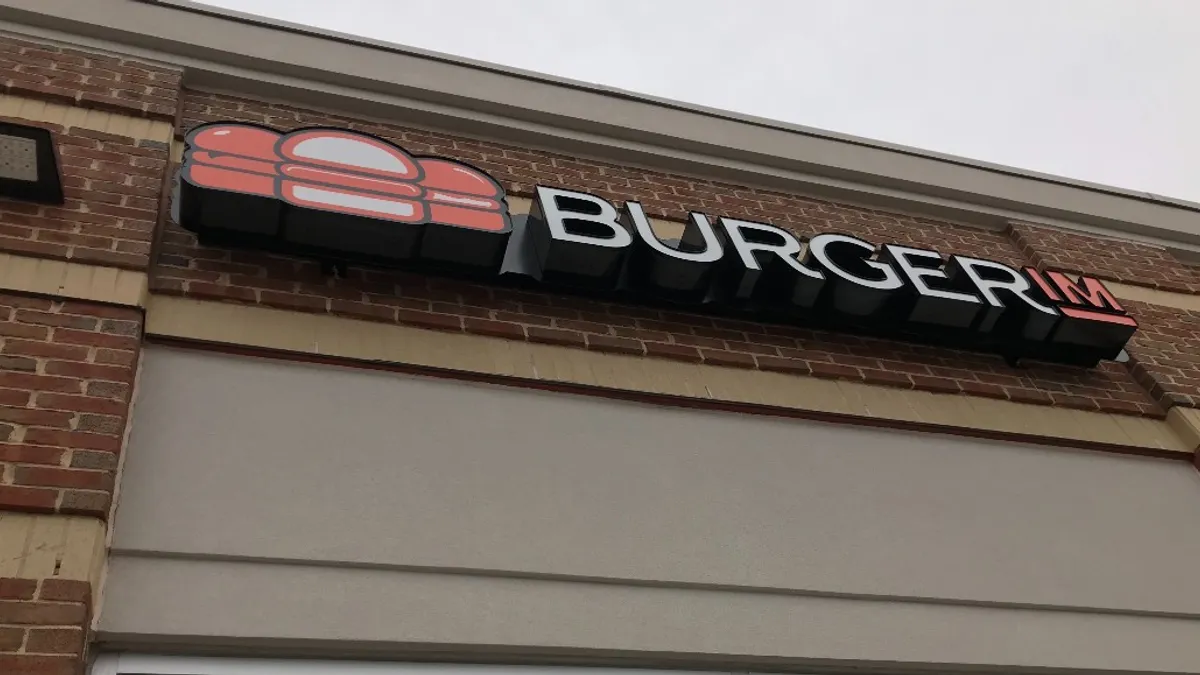Dive Brief:
- Burgerim and its founder, Oren Loni, were sued by the federal government on Monday. The civil lawsuit, filed in a California federal court by Acting Assistant U.S. Attorney General Brian M. Boynton, alleges the chain oversold franchises to operators with little experience and didn't disburse refunds, as it had previously pledged to do — resulting in "substantial debt or ruined credit" for many Burgerim franchisees.
- The lawsuit claims Burgerim didn't include information in its franchise disclosure document (FDD) that would help prospective franchisees to get a clear picture of previous operators' experiences and evaluate earnings opportunities.
- The lawsuit is the latest development in Burgerim's long fall from grace. A year ago, California fined the chain in order to refund franchisee fees after the restaurant violated several of the Golden State's franchise regulations. The chain responded that it could only pay back "pennies on the dollar."
Dive Insight:
The federal government's involvement in Burgerim's financial failings reflects the severity of the chain's mistreatment of its franchisees.
According to the suit, the burger chain downplayed the risks that come with opening a franchise in its marketing to prospective operators and promised to help franchisees select real estate and contractors and acquire licenses to open restaurants. Burgerim also allegedly targeted veterans offering discounts between $10,000 and $15,000 on its standard $50,000 to $70,000 franchise fee.
Many of these inexperienced individuals were unable to secure the financing they needed or necessary real estate, and were not granted the refunds that Burgerim had promised. The restaurant, however, accrued tens of millions of dollars in franchise fee payments since 2017.
"Defendants sold more than 1,500 Burgerim franchises, but the overwhelming majority of Burgerim franchisees never got their businesses off the ground. Hundreds sought to cancel their franchise agreements. In many cases, Defendants did not honor their promises to provide refunds, and in this scheme, have bilked aspiring business owners out of millions of dollars," the suit reads.
The chain dangled the promise of these refunds to encourage hesitant would-be franchisees to sign on.
"Defendants ... glossed over the risks of these hefty investments, touting the franchise as a 'business in a box,' and purporting to offer refunds in the event franchisees could not open the restaurant," the suit claims.
The chain also didn't have liquidity requirements for its franchisees and lured partners with Facebook and Instagram ads that stated "No Experience Necessary," Restaurant Business reports.
Several states, including California, Washington and Maryland, revoked the chain's right to sell franchising registrations in late 2019 and 2020. Restaurant Business reports that around this time, Loni closed Burgerim's headquarters, froze employee payments, informed operators the company would file for bankruptcy and left the United States for Israel.
Despite this, Burgerim's website still features a page advertising franchising opportunities and calls itself the fastest-growing burger chain, though it appears the page hasn't been updated since 2019.
"To date, there are stores in 15 states and additional franchises are planned across the country. Our projections show that we will be operating nearly 500 stores in the United States by the end of 2019," Burgerim's franchise page reads.













